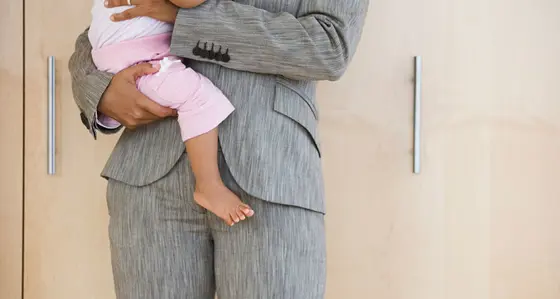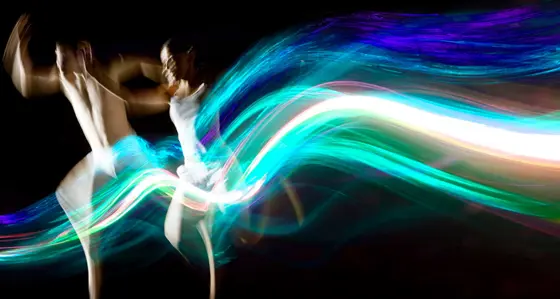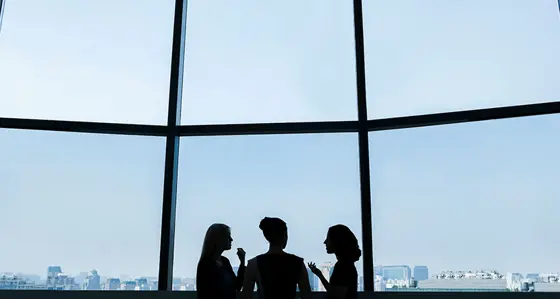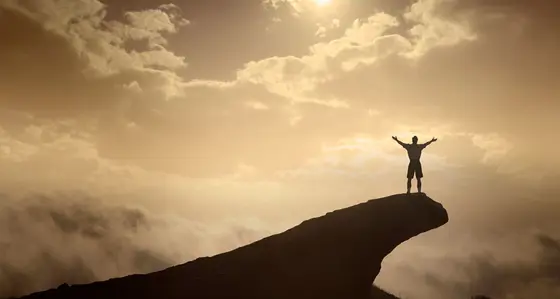
Faith, female and ethnic minority: a triple layer
5 min read 11 March 2024
I’d place myself in the middle of the code, which is an improvement compared with when I first started at Baringa four years ago.
At that point, I was not being my authentic self at all, far down the scale. Faith is often seen as something private that shouldn’t interfere with the daily world of work, but my headscarf is a very obvious marker of my religion. I’m also female and from an ethnic minority - so I’ve faced a triple layer of challenges at work. And that has felt daunting.
I’m conscious that I dress differently, but not necessarily uncomfortable about it. When I joined Baringa there weren’t many people who looked like me, but this has changed as the company has grown and incorporated more Diversity, Equity and Inclusion (DEI) into recruitment.
No DEI lip service
Baringa isn’t doing lip service to DEI because it looks good externally. There’s a huge focus on making people of different backgrounds feel at ease about speaking up and asking for adjustments to their work life if they need it. It’s something I’ve not experienced in any workplace before.
It took me a long time to be ok asking for available space and time to pray. There’s still a nagging voice that wonders if I’m being difficult; it’s the same one I hear if a meeting clashes with prayer times or if there are company events and I need to ask about prayer space and clarify dietary requirements.
The month of Ramadan when Muslims fast during daylight hours can also be tricky but the company is always flexible with my schedule so I can start earlier or later. This year my manager even raised it before I did. She said, ‘What’s your thinking about work patterns for this month? Do you need anything from me?’. That proactiveness made all the difference in helping me feel accepted for who I am.
A supportive interfaith community
Our interfaith network is a friendly space where people of different faiths bounce ideas off each other. I remember a new colleague told me he hadn’t asked for adjustments for Ramadan because he thought he was too new to be able to do so.
Younger me would have said the same; I was more hesitant about upsetting the status quo. Now I question why we feel this way; that we can’t voice our needs. It’s about feeling empowered to speak up about what’s important. Having a supportive community helps you realise it’s not just you making lone requests. Others may be asking the same.
Rewriting the code for different times of life
I think the concept of the code varies depending on different times of life. I think as people change, we should be rewriting the code accordingly.
I try to remember that it’s ok not to fit the current “normal” – whatever that might be. While things have improved dramatically in my time here, more can be done to ensure we’re facilitating those with certain lifestyles or personal commitments to do what they need to do and not feel like they’re missing out if they’re unavailable. There’ll always be new adjustments, reviews or adaptations to make.
I’m not so blindsided that I only want to talk about my religion, but it does have such an importance to me in my daily life. It would be liberating to have those conversations without the little voice in my head casting doubt.
I’ve put myself in the middle of the code because of the fact I’m still not 100% relaxed in asking for adjustments to accommodate my faith. But I also know that nothing will change in terms of authenticity unless I speak up.
More from this series

Supporting different versions of our authentic selves
Parris Lougheed, Executive Assistant, describes her journey as a Black woman discovering the code and finding support throughout Baringa. She believes that rewriting the code must be authentic and allow us to bring our everchanging true selves to work. Parris recently became a parent, and this means discovering a new code, and a new version of her working self.
Read more
Dancing with the code
Sam Bennett, Knowledge Management Advisor, shares exactly what it means to recognise and work within the code. After suffering from imposter syndrome before even starting at Baringa, Sam describes how they were able to become more them at work, how Baringa supported them, and how change now needs to come from the wider industry.
Read more
Wonder Woman doesn’t exist…
Olena Isaieva is happy to admit she is no Wonder Woman. It’s not possible to do everything by yourself, and you shouldn’t try. Our Director in Commodities and Energy Trading in Switzerland credits a strong support system with the success and fulfilment she enjoys, both in her personal life and career. Read on to find out how she is using her own experiences as a woman in male-dominated environments, to support and encourage others at Baringa.
Read more
Freeing the chameleon
From the covert world of law enforcement and intelligence to time in consulting firms big and small, James Hampshire has done his fair share of shape-shifting to fit in. However, following a revelatory diagnosis, James explains how it was time to let go of the mask and reveal his true self.
Read moreRead our Personal Journeys blog

Diversity and inclusion: personal journeys
A series of reflective pieces where brilliant people from within Baringa will share their journeys as individuals or members of our company and community.
Read more


Why I am talking to white people about race
Introducing Jennifer Cook, an expert in organisational and operational transformation and a leader in Baringa’s Ethnic Diversity Network
Read moreIs digital and AI delivering what your business needs?
Digital and AI can solve your toughest challenges and elevate your business performance. But success isn’t always straightforward. Where can you unlock opportunity? And what does it take to set the foundation for lasting success?